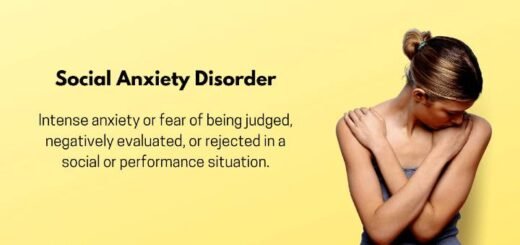Kiwi Tips to Overcome Social Phobia and Boost Confidence
Navigating social situations can be daunting for many, especially for those facing social anxiety. In New Zealand, countless individuals have transformed their experiences through practical strategies and tools that foster confidence and connection. This guide, inspired by the journeys of successful Kiwis, offers insights into overcoming social anxiety, showcasing real-life stories that resonate with many.
By implementing these strategies, individuals can effectively manage their fears and thrive in social environments. From understanding triggers to utilizing coping mechanisms, the path to social anxiety success is attainable. For inspiration and support, explore the real stories of Kiwis who have shared their journeys, demonstrating that with the right tools and tips, anyone can achieve social anxiety success.
Understanding Social Anxiety and Its Impact
Social anxiety, often described as an intense fear of social situations, can significantly impede one’s ability to connect with others and engage in daily activities. In New Zealand, this condition affects numerous individuals, leading to feelings of isolation and discomfort. Understanding the nuances of social anxiety is the first step towards managing it effectively. Individuals with social phobia may experience symptoms like excessive self-consciousness, fear of judgment, and avoidance of social gatherings.
One effective strategy is to educate oneself about social anxiety. Resources like Social Phobia NZ provide valuable insights and support. These educational tools empower individuals to recognize their feelings and understand that they are not alone. By acknowledging that social anxiety is a common experience, especially in a close-knit society like New Zealand, individuals can begin to combat the stigma associated with it.
Furthermore, recognizing the triggers of social anxiety can help tailor personal coping strategies. For instance, a common trigger may be public speaking, which is often encountered in educational or professional settings. Understanding these triggers can pave the way for practical solutions, such as gradual exposure to feared situations, ultimately leading to social anxiety success.
Setting Realistic Goals for Social Interaction
Setting achievable goals is crucial for managing social situations effectively. In New Zealand, where community events and social gatherings are prevalent, it’s essential to create a plan that feels manageable. Start by establishing small, specific goals, such as initiating a conversation with a colleague or attending a local event for a short duration.
Breaking down larger goals into smaller, actionable steps can significantly reduce feelings of overwhelm. For example, if someone wishes to become more comfortable at social events, they might start by attending a gathering with a friend for just thirty minutes. The success of these small interactions builds confidence, making it easier to engage in more significant social situations over time.
Additionally, tracking progress can provide motivation and a sense of achievement. Keeping a journal to note successes, however small, can illustrate growth and help individuals recognize their capabilities. This practice aligns with social anxiety success, showcasing that progress is possible through perseverance and realistic goal-setting.
Practicing Mindfulness and Relaxation Techniques
Mindfulness and relaxation techniques can be incredibly effective in managing social anxiety. In a fast-paced world, taking a moment to breathe and center oneself can make a significant difference in how one approaches social situations. Practices such as deep breathing, meditation, or yoga can help calm the mind and reduce feelings of anxiety.
New Zealand’s natural landscapes offer perfect opportunities for mindfulness practices. For instance, spending time in the outdoors, whether on a hike in the Waitakere Ranges or along the beaches of the Coromandel, can enhance one’s mental well-being. Engaging with nature not only provides a serene environment but also offers a break from daily stressors.
Incorporating these techniques into daily routines can help individuals become more resilient in the face of social anxiety. For example, before attending a social event, taking a few moments to engage in deep breathing exercises can help alleviate immediate feelings of stress. Over time, these practices can contribute to social anxiety success, as individuals feel more equipped to handle challenging situations.
Utilizing Support Networks
Building and utilizing support networks is vital for managing social situations, especially in a country like New Zealand, where community connections are essential. Whether it’s family, friends, or support groups, having a solid support system can provide comfort and encouragement. Sharing experiences with others who understand social anxiety can be incredibly validating and empowering.
In New Zealand, various organizations and peer support groups offer resources and camaraderie for individuals struggling with social anxiety. Participating in local groups, such as those found through Social Phobia NZ, can provide a safe space to connect with others facing similar challenges. These connections not only offer practical advice but also foster a sense of belonging.
Moreover, having a trusted friend or family member accompany you to social events can significantly ease anxiety. This familiar presence can provide reassurance and a sense of safety, allowing individuals to gradually step outside their comfort zone. Building a network of support is a crucial component of achieving social anxiety success.
Engaging in Gradual Exposure Techniques
Gradual exposure techniques are an effective method for managing social anxiety. This approach involves slowly and systematically exposing oneself to feared social situations, which can help desensitize anxiety responses. In New Zealand, individuals can start with low-stakes environments, such as small gatherings or casual meet-ups, before progressing to larger events.
For example, someone might begin by engaging in conversations with acquaintances before attempting to speak in front of larger groups. This gradual escalation allows individuals to build confidence and adapt to varying social contexts. It’s essential to celebrate each step taken, as these small victories contribute to overall social anxiety success.
Additionally, incorporating role-playing exercises can be beneficial. Practicing social interactions in a safe environment with a trusted friend can provide valuable preparation for real-life scenarios. This method not only increases familiarity with social dynamics but also enhances communication skills, making it easier to navigate social situations in the future.
Adopting Positive Self-Talk and Affirmations
Positive self-talk and affirmations can play a crucial role in overcoming social anxiety. The way individuals perceive themselves and their abilities significantly impacts their confidence in social situations. In New Zealand, where there is a strong emphasis on community and connection, reinforcing positive self-beliefs can be particularly effective.
Incorporating daily affirmations, such as “I am capable of handling social situations” or “I am worthy of connection,” can shift negative thought patterns and promote a more positive self-image. Creating a list of personal affirmations and repeating them regularly can help individuals internalize these empowering messages.
Moreover, challenging negative thoughts is equally important. When faced with anxious thoughts, individuals can practice reframing their perspectives. Instead of thinking, “Everyone will judge me,” one might reframe it to, “Most people are focused on themselves, and I can enjoy the moment.” This cognitive restructuring is vital for achieving social anxiety success and fostering a healthier mindset.
Seeking Professional Help When Needed
While self-help strategies can be effective, seeking professional assistance is sometimes necessary for managing social anxiety. In New Zealand, various mental health services and therapists specialize in anxiety disorders. Professional guidance can provide tailored strategies and support, helping individuals navigate their unique challenges.
Cognitive-behavioral therapy (CBT) is one popular treatment method for social anxiety. This evidence-based approach focuses on identifying and changing negative thought patterns and behaviors associated with anxiety. Many therapists in New Zealand offer CBT, providing individuals with tools to confront their fears and practice new coping skills.
Additionally, joining a support group can complement professional treatment. Engaging with others who share similar experiences can foster a sense of community and understanding. Resources like Social Phobia NZ can help individuals find local support groups and professional help. By taking proactive steps and seeking support, individuals can work towards social anxiety success and improve their quality of life.
FAQs
What are some common symptoms of social anxiety?
Common symptoms of social anxiety include excessive worry about social interactions, fear of being judged or embarrassed, physical symptoms like sweating or trembling, and avoiding social situations altogether. Recognizing these symptoms is the first step toward effective management.
How can I prepare for a social event to reduce anxiety?
Preparation is key! Start by familiarizing yourself with the event details, practicing conversation starters, and setting realistic expectations. Visualizing success and rehearsing interactions can also help decrease feelings of anxiety.
What practical strategies can I use to manage social situations better?
Successful Kiwis often recommend strategies such as deep breathing exercises, positive self-talk, and gradually exposing yourself to social situations. Breaking the ice with small talk and focusing on listening can also ease anxiety and foster connections.
How can I build confidence in social settings?
Building confidence takes time and practice. Start by setting small, achievable goals, like initiating a conversation with a colleague or joining a group activity. Celebrate your successes, no matter how minor, and remember that confidence grows with experience.
What role do support networks play in overcoming social anxiety?
Support networks are vital in managing social anxiety. Surrounding yourself with understanding friends and family can provide encouragement and a safe space to practice social skills. Additionally, support groups can offer shared experiences and strategies from others facing similar challenges.
Are there any resources or tools that can help with social anxiety management?
Yes, there are numerous resources available, including self-help books, online courses, and mobile apps designed to help manage anxiety. Mindfulness and meditation practices can also be beneficial, as they promote relaxation and present-moment awareness.
Can professional help make a difference in managing social anxiety?
Absolutely! Seeking help from a therapist or counselor trained in cognitive-behavioral therapy (CBT) can provide you with tailored strategies and tools to address your specific challenges. Many successful Kiwis have found that professional guidance has been instrumental in their journey toward overcoming social anxiety.
References
- Social Phobia New Zealand – A comprehensive resource offering tools and strategies for managing social anxiety, including personal stories and expert advice from successful individuals.
- Mental Health Foundation of New Zealand – Provides resources and tips for improving mental well-being, including guidance on navigating social situations effectively.
- Te Papa Tongarewa (Museum of New Zealand) – 5 Tips for Handling Social Situations – Offers practical advice and strategies to help manage social interactions, inspired by various successful Kiwis.
- Mind UK – Social Anxiety – An informative source on social anxiety, providing practical tips and strategies that can be beneficial for Kiwis facing similar challenges.
- Grow NZ – A mental health organization that shares personal development strategies and stories of resilience from Kiwis who have successfully managed social situations.




